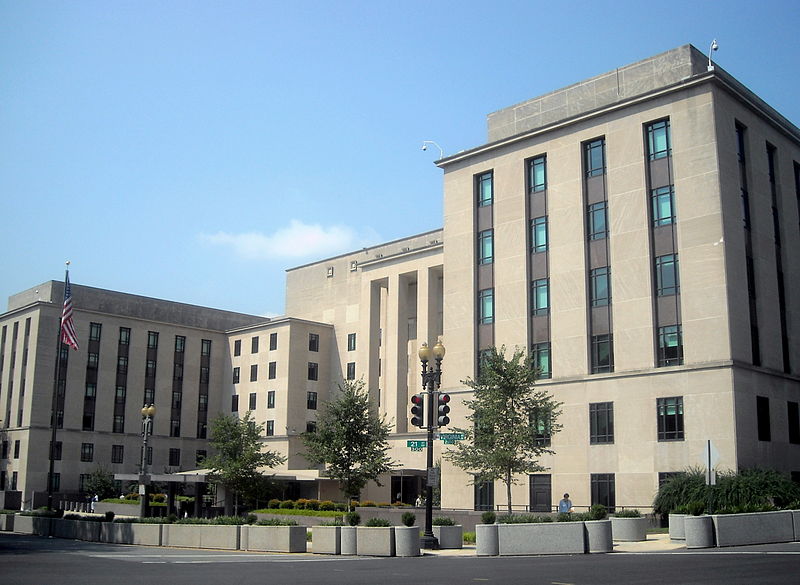 Parler
Parler Gab
Gab
- Secretary of State Marco Rubio announced the U.S. State Department formally shut down the GEC, accusing it of misusing taxpayer funds to target conservative voices under the Biden administration. The agency was rebranded as Counter Foreign Information Manipulation and Interference (R/FIMI) in late 2023, but Rubio dismissed it as a "rebranded shell game" and declared the GEC "dead."
- A years-long political feud over the GEC's alleged suppression of conservative media, campaign-finance controversies and rebranding attempts preceded its closure. Congressional Republicans denied its $61 million 2023 budget in December 2023, forcing the shutdown after refusing to fund its operations.
- Created in 2016 to combat foreign disinformation like ISIS propaganda, critics argued the GEC shifted focus to U.S. domestic politics, targeting outlets like The Federalist and labeling figures such as journalist Ben Shapiro as "foreign agents." Republicans condemned this as unconstitutional overreach.
- Figures like Elon Musk and journalist Matt Taibbi condemned the GEC's actions, with Musk calling it the "worst offender in U.S. government censorship." The closure reignited national debates over free speech, government overreach and media bias, with critics warning of politicizing counterintelligence efforts.
- While Democrats defended the GEC's role in national security against foreign disinformation, the shutdown reflects deep partisan divisions. Experts question whether the agency's functions persist under renamed programs, with the decision underscored by fears of eroding free speech or weakening anti-disinformation tools, signaling broader cultural and political tensions.
Broader implications and political polarization
The GEC scandal fits into a broader national debate over free speech, government overreach and media bias. Rubio's move has been framed by allies as a triumph for First Amendment principles, while critics argue it risks eroding tools to combat genuine foreign threats. The controversy echoes Cold War-era fears of government censorship, with historians noting parallels to McCarthyism's anti-Communist purges. "This isn't just about an agency's closure – it's about who controls the narrative in the digital age," said political analyst Sarah Kramer. Rubio vowed the GEC's "core functions will not return," but some experts question whether its crackdown on disinformation will persist under renamed programs. The Biden team has not formally addressed his announcement, leaving political adherents to speculate whether free speech or national security will dominate future policy. The GEC's fate underscores a deep divide over whether the U.S. government should police domestic content at all, even when adversaries like Russia or China exploit such efforts to legitimize authoritarianism. As public distrust in institutions grows, the decision could signal increased partisanship – or a commitment to safeguarding democratic ideals. The closure of the GEC marks a milestone in the Biden-Rubio era's ongoing clash over executive power and free expression. While critics celebrate what they see as a rebuke of censorship, others warn of politicizing counterintelligence efforts. With debates over information integrity intensifying, Wednesday's move may only further catalyze the culture war playing out inside the State Department – and the American psyche. Watch the video below that talks about the Trump administration cracking down on censorship. This video is from the NewsClips channel on Brighteon.com.More related stories:
Trump's FDA pick Makary vows to fight censorship, tackle toxic food additives. Trump signs executive order to end federal censorship and protect free speech. Trump cracks down on CISA, aims to end government censorship.Sources include:
RT.com FoxNews.com Brighteon.comRethinking the nexus of science, technology and governance: Murray Rothbard’s radical vision
By Belle Carter // Share
Justice Department to enforce Trump’s ban on gender transition procedures for minors
By Laura Harris // Share
Federal judge halts PROOF OF CITIZENSHIP requirement for voter ID
By Lance D Johnson // Share
Wisconsin judge arrested by FBI for allegedly helping illegal immigrant evade ICE
By Cassie B. // Share
Governments continue to obscure COVID-19 vaccine data amid rising concerns over excess deaths
By patricklewis // Share
Tech giant Microsoft backs EXTINCTION with its support of carbon capture programs
By ramontomeydw // Share
Germany to resume arms exports to Israel despite repeated ceasefire violations
By isabelle // Share










